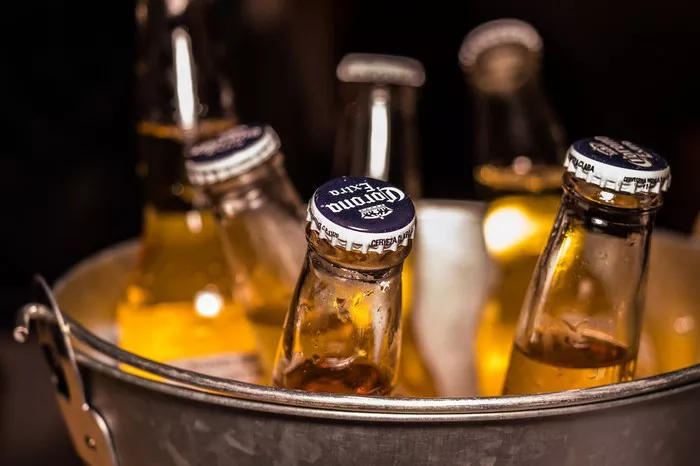Non-alcoholic beer has steadily gained popularity among consumers seeking a healthier alternative without compromising the taste and experience of traditional beer. A common query that arises within the realm of non-alcoholic brews pertains to their carbonation. Understanding whether non-alcoholic beer is carbonated involves delving into the intricate brewing processes and specific characteristics that define this beverage.
Carbonation: A Fundamental Element
At the heart of the question “Is non-alcoholic beer carbonated?” lies the fundamental concept of carbonation. Carbonation is the process of dissolving carbon dioxide (CO2) gas into a liquid to produce effervescence, creating that familiar fizz or bubbles in beverages. Traditional beers often undergo this process, contributing to their characteristic bubbly texture and refreshing taste. When exploring non-alcoholic beer, the presence and intensity of carbonation play a significant role in replicating the sensory experience of regular beer.
Understanding Non-Alcoholic Beer
Non-alcoholic beer, as the name suggests, contains minimal to no alcohol content, typically less than 0.5% alcohol by volume (ABV). The brewing process of non-alcoholic beer mirrors that of regular beer, involving the fermentation of malted barley, hops, water, and yeast. However, the key differentiation lies in the treatment used to eliminate or reduce the alcohol content, which can affect the carbonation levels in the final product.
The Brewing Process and Carbonation
During the brewing process of both alcoholic and non-alcoholic beers, carbonation is often introduced in two distinct phases: primary fermentation and secondary carbonation. In primary fermentation, yeast converts sugars from malted grains into alcohol and CO2. However, for non-alcoholic beer, additional steps are employed to remove or reduce the alcohol content without fully compromising the beer’s taste or carbonation.
Impact of Alcohol Removal on Carbonation
The methods used to create non-alcoholic beer can influence its carbonation levels. One common technique involves vacuum distillation or reverse osmosis, where alcohol is removed after fermentation. These processes can inadvertently affect the beer’s carbonation by altering its chemical composition or disrupting the balance of CO2. Consequently, brewers must carefully manage the reintroduction of CO2 to maintain desired carbonation levels.
Carbonation Techniques in Non-Alcoholic Beer
To preserve the effervescence in non-alcoholic beer, brewers employ various carbonation techniques. Forced carbonation, a prevalent method in the brewing industry, involves injecting CO2 into the beer under pressure, ensuring consistent and controllable carbonation levels. Another method is natural carbonation, where CO2 generated during fermentation is trapped and preserved, contributing to the beer’s bubbles and mouthfeel.
Quality Control and Carbonation Precision
Maintaining the right carbonation level in non-alcoholic beer demands meticulous quality control measures. Breweries utilize precise equipment and monitoring systems to regulate CO2 levels, ensuring consistency in taste, texture, and overall drinking experience. Achieving the perfect balance of carbonation in non-alcoholic beer is an art that combines science, expertise, and technological advancements.
See Also: Unraveling the Bitterness in Beer: Understanding its Complexities
Consumer Preferences and Carbonation Variations
The perception of carbonation varies among consumers, influencing their preferences for non-alcoholic beer. Some prefer a higher level of carbonation, which offers a livelier mouthfeel and enhances the beer’s aroma and flavor profile. Conversely, others lean towards a softer, milder fizz, seeking a smoother drinking experience. Understanding these nuances helps brewers cater to diverse tastes and preferences.
Carbonation’s Impact on Taste and Mouthfeel
Carbonation significantly contributes to the sensory aspects of non-alcoholic beer. The bubbles released upon opening a bottle or can create a delightful effervescence that affects the beer’s aroma and taste. Properly carbonated non-alcoholic beer can mimic the crispness and bite associated with traditional beer styles, delivering a satisfying mouthfeel without the alcohol content.
Carbonation Maintenance and Packaging
The packaging of non-alcoholic beer plays a crucial role in preserving carbonation. Bottles, cans, and kegs undergo specific processes to maintain the desired CO2 levels and prevent gas leakage. Sealing mechanisms, pressure control, and storage conditions are meticulously managed to uphold the beer’s effervescence until it reaches the consumer.
The Rise of Non-Alcoholic Beer Culture
The evolving beer landscape has witnessed a surge in non-alcoholic beer consumption, driven by health-conscious consumers, designated drivers, and individuals seeking diverse beverage options. As the demand for non-alcoholic beer grows, brewers continue to innovate, striving to perfect the balance of flavors, aromas, and carbonation in their offerings.
Conclusion: Effervescence in Every Sip
In conclusion, the inquiry, “Is non-alcoholic beer carbonated?” unveils the intricate relationship between carbonation and the brewing process of non-alcoholic beer. Carbonation serves as a pivotal element in replicating the sensory experience of traditional beer, influencing taste, aroma, and mouthfeel. Brewers employ various techniques to achieve and maintain carbonation levels, catering to diverse consumer preferences while ensuring quality and consistency.
As the non-alcoholic beer market expands, the quest for the perfect balance of carbonation continues, driving innovation and enhancing the overall drinking experience for aficionados seeking an alcohol-free alternative. Ultimately, whether effervescent and lively or subtly fizzing, non-alcoholic beer strives to deliver a satisfying, refreshing beverage that mirrors the essence of traditional beer, minus the alcohol content.


